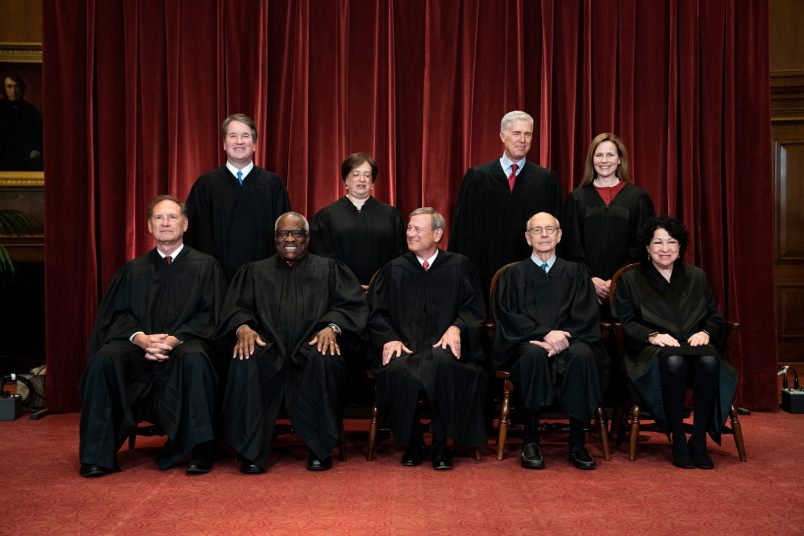The Supreme Court is hearing arguments Monday morning in West Virginia v. EPA, where red states and coal companies are asking the Court to dramatically limit the agency’s ability to regulate greenhouse gas emissions.
Legal experts were stunned that the Court took up this case in the first place, since both agency rules in question, one from the Obama administration and its replacement from the Trump EPA, are no longer operational. The Biden administration asked the Court not to take up the case over the defunct rules, saying that it’s working on a replacement that will likely inspire more litigation then anyway.
The Court didn’t listen. That struck court watchers as ominous, perhaps signaling that the conservative justices are too eager to curtail the EPA’s power to wait.
Argument schedule:
- Lindsay See, West Virginia solicitor general (20 minutes)
- Jacob Roth, attorney for coal companies (15 minutes)
- Elizabeth Prelogar, United States solicitor general (20 minutes)
- Beth Brinkmann, attorney for power companies siding with EPA (15 minutes)
Listen in here:
Handy definitions:
Major questions doctrine — holds that, in order for agencies to make rules that have significant economic and social effects, Congress must have been explicit in the legislation giving agencies their authority.
Nondelegation — the major questions doctrine’s more aggressive cousin. This doctrine (which has not been used to strike down a regulation since the New Deal) questions Congress’ ability to outsource its legislative abilities at all.
The Supreme Court is hearing arguments Monday morning in West Virginia v. EPA, where red states and coal companies are asking the Court to dramatically limit the agency’s ability to regulate greenhouse gas emissions.
Legal experts were stunned that the Court took up this case in the first place, since both agency rules in question, one from the Obama administration and its replacement from the Trump EPA, are no longer operational. The Biden administration asked the Court not to take up the case over the defunct rules, saying that it’s working on a replacement that will likely inspire more litigation then anyway.
The Court didn’t listen. That struck court watchers as ominous, perhaps signaling that the conservative justices are too eager to curtail the EPA’s power to wait.

